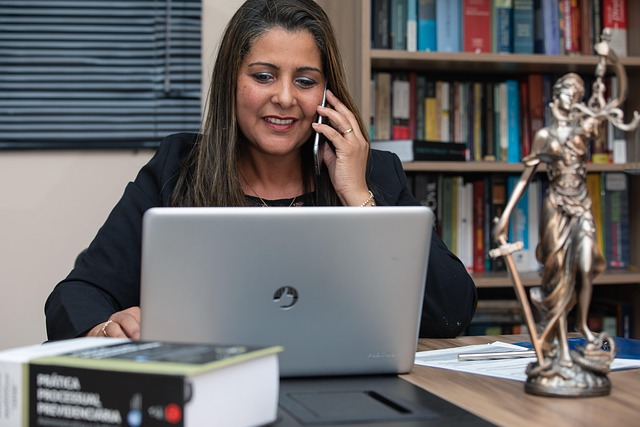Being accused of a crime can be one of the most frightening experiences anyone can face. The thought of losing your freedom, reputation, or livelihood is overwhelming. In moments like these, it’s crucial to understand that you have legal rights protections that can make or break your case. The person best equipped to help you assert and defend those rights is a criminal lawyer.
A criminal lawyer’s job extends far beyond courtroom appearances; they are your shield, strategist, and advocate. This article explores in depth how a criminal lawyer protects you, from the initial arrest to trial and beyond.
The Vital Role of a Criminal Lawyer
A criminal lawyer, also called a criminal defense attorney, specializes in representing individuals or entities accused of breaking the law. Their main purpose is to ensure that the government or prosecution proves its case fairly and within the limits of the law.
To get an overview of what this legal profession entails, you can explore the Wikipedia entry on criminal defense lawyers, which explains their functions in various legal systems worldwide.
The First Line of Defense
The moment you are under investigation or arrested, a criminal lawyer becomes your first line of defense. They intervene to prevent law enforcement from violating your constitutional rights, such as the right to remain silent, the right to counsel, and the right to due process.
Lawyers review how your arrest was conducted, whether the police had probable cause, and whether any evidence was obtained unlawfully. If mistakes or violations occurred, your attorney can move to have that evidence excluded from the case, weakening the prosecution’s position.
Local Legal Expertise Matters
If you live in or near Canton and are facing criminal charges, reaching out to an experienced Canton Criminal Lawyer can make a world of difference. Local attorneys understand the nuances of the area’s courts, prosecutors, and judges insight that can lead to more favorable outcomes through strategic negotiation and local familiarity.
Key Rights a Criminal Lawyer Protects
Knowing your rights is the foundation of a strong defense. Here are the major constitutional and procedural rights your lawyer ensures are upheld.
1. The Right to Remain Silent
One of your most powerful protections is the right to remain silent. Anything you say to the police can and often will be used against you in court. A criminal lawyer reminds clients never to make statements without counsel present. If law enforcement failed to read your rights or coerced a confession, your attorney can ask the court to suppress those statements.
2. The Right to Legal Representation
The right to have an attorney during questioning and throughout trial ensures that you never face the prosecution alone. Even if you can’t afford private counsel, courts must appoint a public defender. Your lawyer not only represents you but also ensures the state provides adequate and effective assistance of counsel.
3. The Right to Due Process
Due process means that the government must follow fair procedures before depriving you of life, liberty, or property. A criminal lawyer enforces this by making sure charges are properly filed, evidence is disclosed, and deadlines are met. Any shortcuts or irregularities in procedure can be grounds for dismissal.
4. Protection Against Unlawful Searches and Seizures
Police officers must obtain warrants and have probable cause before searching your home, car, or person. A criminal defense lawyer reviews the circumstances of every search to ensure your Fourth Amendment rights weren’t violated. Illegally obtained evidence, like drugs or weapon,s can often be excluded entirely.
5. The Right to a Fair Trial
Your lawyer guarantees that the prosecution meets the burden of proof beyond a reasonable doubt. They also protect your rights to confront witnesses, present evidence, and have an impartial jury. These principles are at the heart of every fair criminal trial.

The Criminal Case Process and How Your Lawyer Guides You
Facing criminal charges can feel like a maze of legal procedures, but a defense lawyer breaks down each step and guides you strategically.
Step 1: Arrest and Investigation
The process begins with an investigation or arrest. At this stage, your lawyer’s immediate goal is to protect you from self-incrimination and ensure your rights are read and respected. They may also start their own investigation to collect evidence, identify witnesses, and preserve video footage or communications that could support your defense.
Step 2: Arraignment and Bail
During arraignment, the charges are formally read, and you enter a plea, usually “not guilty,” at this stage. Your lawyer can argue for reduced bail or even request release on your own recognizance. They assess the prosecution’s evidence early to plan the next move.
Step 3: Pre-Trial Motions and Discovery
Pre-trial is where much of the real legal battle happens. Your attorney requests access to all prosecution evidence (known as discovery) and may file motions to:
- • Dismiss the case due to insufficient evidence.
- • Suppress illegally obtained evidence.
- • Exclude unreliable witness testimony.
- • Compel disclosure of exculpatory evidence.
Step 4: Plea Bargaining
Not all cases go to trial. Sometimes, your attorney may negotiate a plea deal to minimize penalties. However, they will only do so if it truly serves your best interest. Skilled lawyers often secure reduced charges or alternative sentencing options like probation or rehabilitation programs instead of jail.
Step 5: Trial
If your case proceeds to trial, your attorney will cross-examine witnesses, present evidence, and highlight inconsistencies in the prosecution’s story. They’ll emphasize the principle that guilt must be proven beyond a reasonable doubt; if the state fails to meet this burden, you should be acquitted.
Step 6: Sentencing and Appeals
If convicted, your lawyer can still advocate for a lighter sentence by presenting mitigating factors such as lack of prior offenses, community service, or evidence of rehabilitation. Post-trial, they can file an appeal or motion for a new trial if legal errors occurred.
Strategic Defense Tactics Used by Criminal Lawyers
A good defense isn’t just about reacting; it’s about building proactive strategies that protect clients from every angle.
Building a Strong Defense
A lawyer reviews every aspect of the case to identify weaknesses in the prosecution’s evidence. This may include:
- • Challenging forensic results or lab procedures.
- • Questioning witness credibility.
- • Investigating police misconduct or entrapment.
- • Presenting alibis and alternative explanations.
Negotiating with Prosecutors
Experienced criminal attorneys often build professional relationships with prosecutors. This allows them to negotiate reduced sentences, dropped charges, or participation in diversion programs. Effective negotiation requires understanding what motivates prosecutors, whether it’s saving resources, avoiding appeals, or addressing overcrowded dockets.
Managing Public Perception and Collateral Consequences
Criminal accusations can destroy reputations even before trial. Lawyers help clients manage public perception by advising on media interactions, social media use, and personal statements. They also handle collateral issues like professional licenses, immigration status, or child custody.
How to Choose the Right Criminal Lawyer
Selecting the right lawyer can be one of the most important decisions you’ll ever make. Here’s what to consider:
Experience in Criminal Law
Choose an attorney who focuses specifically on criminal defense. A lawyer who handles these cases daily understands the tactics, procedural nuances, and personalities of the courtroom. If your charges involve a particular area, like drug crimes or DUI, ensure your lawyer has experience in that field.
Local Knowledge
Local experience is invaluable. A lawyer familiar with Canton’s courts, judges, and prosecutors can tailor strategies based on how those individuals operate. Local attorneys also understand community resources like treatment programs or diversion opportunities.
Communication and Transparency
Your lawyer should keep you informed at every stage and explain your options in plain language. Good communication builds trust a vital element in any attorney-client relationship.
Reputation and Integrity
Look for attorneys with strong reviews, professional recognition, and no history of disciplinary action. A lawyer’s reputation often precedes them in court, influencing how seriously prosecutors take negotiations.
Cost and Clarity
Criminal defense can be expensive, but transparency in fees is essential. Ensure that your lawyer provides a clear, written agreement that explains costs, payment structures, and potential additional expenses.
What Happens If You Don’t Hire a Lawyer?
Choosing to face criminal charges without an attorney is extremely risky. Without legal representation, you may unknowingly waive critical rights or make damaging statements. Prosecutors are trained to secure convictions, not to protect your interests.
Self-represented defendants often fail to file motions on time, misunderstand plea deals, or accept agreements that lead to harsher sentences. A skilled defense lawyer prevents these costly mistakes and ensures every possible defense is explored.
Real-Life Scenario: The Importance of Legal Counsel
Imagine being arrested for drug possession after a traffic stop. Police claim they found illegal substances in your car. Without an attorney, you might assume there’s no defense. But a skilled lawyer would immediately investigate:
- • Was the traffic stop lawful?
- • Did the officers have probable cause to search the vehicle?
- • Was the evidence properly handled and tested?
If any step violated your rights, the evidence could be thrown out, potentially leading to dismissal. This kind of detailed legal scrutiny can mean the difference between conviction and freedom.
The Human Side of Criminal Defense
Criminal law isn’t just about statutes and evidence; it’s about people. A good lawyer doesn’t just argue in court; they provide emotional support, guidance, and reassurance during one of life’s darkest moments. They help clients rebuild their lives, regain confidence, and understand that one mistake or accusation does not define their future.
When to Contact a Lawyer
You should contact a criminal defense attorney as soon as:
- • You are approached by the police for questioning.
- • You are arrested or served with a warrant.
- • You suspect you are under investigation.
- • You receive a court summons.
Early intervention allows your lawyer to control the narrative, gather evidence before it disappears, and prevent missteps that could harm your case.
Final Thoughts: Protecting Your Rights and Your Future
The criminal justice system is designed to protect society, but that protection must also extend to individuals accused of crimes. Your rights are not self-enforcing; they require active defense. A skilled criminal lawyer ensures that every safeguard, constitutional, procedural, and ethical, is applied in your favor.
From challenging evidence to negotiating plea deals and representing you at trial, your attorney is the barrier between you and potential injustice. Whether you face minor charges or serious allegations, never underestimate the value of expert legal representation.
If you or a loved one is accused of a crime in the Canton area, don’t wait; consult an experienced criminal defense attorney today. The earlier you act, the stronger your defense will be.

About the author: Leland D. Bengtson
As a journalist, Leland Bengtson dedicated most of his career to law reporting. His greatest satisfaction is to convey legal matters to the public in a language that they can understand. He is active on various platforms and media outlets, writing about common legal issues that people confront every day. While medical malpractice is his strong suit, Leland covers plenty of other topics, including personal injury cases, family law, and other civil and even criminal legal matters.
